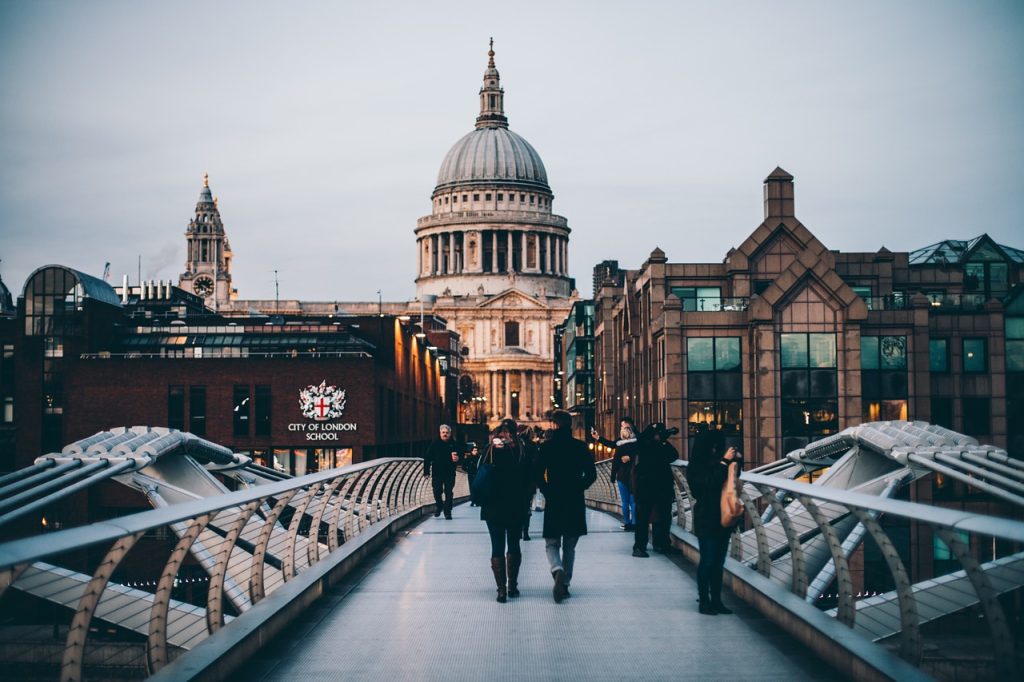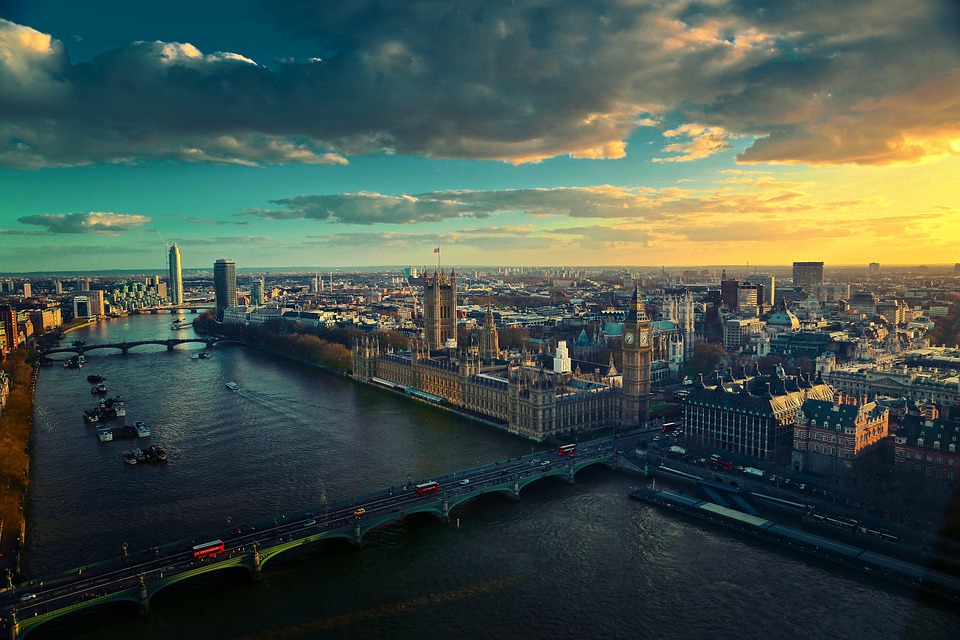-
How clause 9 of Nationality and Borders Bill will impact citizens born in Britain

In its report that is tilted 'I was born and brought up in London but I could still be sent 'back to where I came from' without warning', the My London reported the story of MyLondon's Race and Diversity Correspondent Unzela Khan, in which she talked about how the new clause 9 of the Nationality and Borders Bill will impact British citizens like her.
In October 1993 I was born in a London hospital - my parents and then four-month-old brother had come from Pakistan the previous year, with my father attaining a work visa.
In the following year, all three received an indefinite leave to remain, and a year after this, they received their British Citizenship.
With this, I also automatically gained citizenship through my parents - and of course, I was born here - so for all intents and purposes, I was and am British.
 UK-London-Footbridge/Pixabay
UK-London-Footbridge/PixabayGrowing up in North London, I went to school in Barnet and then went onto secondary school nearby as well.
Read more: Rome hosts Palestinian Christmas Bazaar this weekend
Ultimately, I graduated from University of London while working multiple jobs throughout my university years.
I then started my career as a journalist and hoped to make a change as the industry lacked British south Asians, and coverage around the community has been predominantly negative.
There are around six million people like myself, with similar stories of being born and brought up here, working in the UK and classing themselves as British Pakistani - which, despite having Pakistani at the end of it, does not make the 'British' part of it any less credible - surely?
Although at times it feels as though we are unwanted, this country is where we entered the world and is what we know.
 UK-Norwich city-Market/Pixabay
UK-Norwich city-Market/PixabayEven if we decide to visit our home countries to gain more of a connection with our cultures, at the end of the day we are British citizens, right?
But as much as we try to cling on to being British Pakistani or British Bangladeshi, British anything, the second part of the title has become a tool to ensure we know that we are in fact second class citizens.
This is because even though I was born here, I can only be deprived of my citizenship if I am able to become a national of another country - for me, I would be deported to Pakistan.
Read more: Biden administration is moving to tighten enforcement of sanctions against Iran
Despite being born and brought up here, clause 9, proposed by Home Secretary Priti Patel in July and updated last month would allow for the Home Office to deprive me of my citizenship without delivering physical notification.
This means, if I went abroad and the Government was unable to contact me, before boarding a plane back I would be told my passport is no longer valid without any previous warning.
Mohammed Tasnime Akunjee, the lawyer known for representing Shamima Begum, spoke to MyLondon to explain how the new clause impacts Brits like myself.
He said: "The existing law is that if the Home Secretary deems you not conducive to the public good, and wish to strip you of citizenship, they have to sent you a notice of their decision with a reason for why they are stripping you if citizenship.
 England-Thames river-London-Aerial View/Pixabay
England-Thames river-London-Aerial View/Pixabay"However now, with the new clause, they don't have to tell you, you'll only be told when you try board a plane and your passport is no longer functional."
The Government has said those who are deprived of their citizenship without notice have the right to appeal, however Mr Akunjee says there are issues with this.
He said: "You need a physical notice in order to appeal a decision - if you don't have that then the courts will demand that you prove that you have actually have been stripped.
"You have to acquire that proof and be able to submit that to the court before you can even appeal."
Additionally, although some might think that being born here would put you less at risk of being deprived of your status, Mr Akunjee says from a legal perspective, it does not.
Read more: Fire breaks out at the headquarters of Tunisia’s Ennahda party
He said: "Both people (those born here or who have acquired citizenship) can be stripped of their citizenship, being born or not born here doesn't make a difference in respect of this bill."
According to The Guardian, the Home Office has said: “British citizenship is a privilege, not a right.
"Deprivation of citizenship on conducive grounds is rightly reserved for those who pose a threat to the UK or whose conduct involves very high harm.
"The nationality and borders bill will amend the law so citizenship can be deprived where it is not practicable to give notice, for example, if there is no way of communicating with the person.”
So this means that as long as I am a good immigrant, I can stay in the UK?
However, if I was white, as I would be less likely to be able to get another nationality I would be more likely to keep my citizenship regardless of being a threat to the public.
Source: mylondon
You May Also Like
Popular Posts
Caricature
BENEFIT Sponsors BuildHer...
- April 23, 2025
BENEFIT, the Kingdom’s innovator and leading company in Fintech and electronic financial transactions service, has sponsored the BuildHer CityHack 2025 Hackathon, a two-day event spearheaded by the College of Engineering and Technology at the Royal University for Women (RUW).
Aimed at secondary school students, the event brought together a distinguished group of academic professionals and technology experts to mentor and inspire young participants.
More than 100 high school students from across the Kingdom of Bahrain took part in the hackathon, which featured an intensive programme of training workshops and hands-on sessions. These activities were tailored to enhance participants’ critical thinking, collaborative problem-solving, and team-building capabilities, while also encouraging the development of practical and sustainable solutions to contemporary challenges using modern technological tools.
BENEFIT’s Chief Executive Mr. Abdulwahed AlJanahi, commented: “Our support for this educational hackathon reflects our long-term strategic vision to nurture the talents of emerging national youth and empower the next generation of accomplished female leaders in technology. By fostering creativity and innovation, we aim to contribute meaningfully to Bahrain’s comprehensive development goals and align with the aspirations outlined in the Kingdom’s Vision 2030—an ambition in which BENEFIT plays a central role.”
Professor Riyadh Yousif Hamzah, President of the Royal University for Women, commented: “This initiative reflects our commitment to advancing women in STEM fields. We're cultivating a generation of creative, solution-driven female leaders who will drive national development. Our partnership with BENEFIT exemplifies the powerful synergy between academia and private sector in supporting educational innovation.”
Hanan Abdulla Hasan, Senior Manager, PR & Communication at BENEFIT, said: “We are honoured to collaborate with RUW in supporting this remarkable technology-focused event. It highlights our commitment to social responsibility, and our ongoing efforts to enhance the digital and innovation capabilities of young Bahraini women and foster their ability to harness technological tools in the service of a smarter, more sustainable future.”
For his part, Dr. Humam ElAgha, Acting Dean of the College of Engineering and Technology at the University, said: “BuildHer CityHack 2025 embodies our hands-on approach to education. By tackling real-world problems through creative thinking and sustainable solutions, we're preparing women to thrive in the knowledge economy – a cornerstone of the University's vision.”
opinion
Report
ads
Newsletter
Subscribe to our mailing list to get the new updates!






















